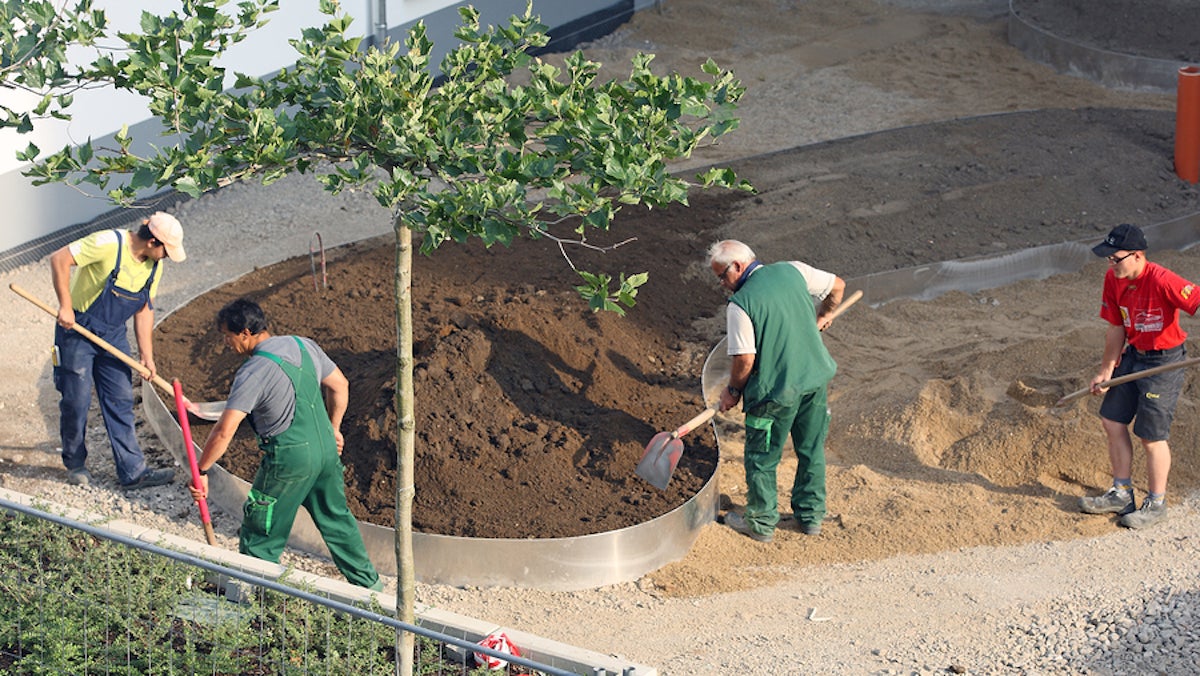15,000 new seasonal guest-worker visas simply a ‘Band-Aid’ for labor shortage, say employers
Listen
(Joe Dejvice / BigStock)
On January 2, Carl Hemphill, president of Three Seasons Landscaping in Upper Darby, applied to the U.S. Department of Labor for ten workers seasonal immigrant workers during the busy spring season.
At first, none of those requests were approved.
“It’s just brutal,” said Hemphill, of the impact of the visa cap on his bottom line. Hemphill also runs a labor-sourcing company call MJC, LLC, which recruits seasonal guest workers from places like Guatemala and Ecuador. Employers must first show they offered positions to U.S. residents in order to be eligible for the visa program.
In response to lobbying by employers like Hemphill, the federal government announced this week it would allow 15,000 more temporary, non-agricultural immigrant workers into the country, over the standing cap of 66,000 H-2B visas. Landscaping, hospitality and contractors associations had hoped for an even larger expansion and the National Association of Landscape Professionals even called the move a “disappointment…most likely too little and too late to impact the needs of landscape companies, the single largest user of H-2B services.”
To benefit from the expansion, employers also have to meet a higher bar, showing that without additional workers their businesses will suffer “irreparable harm.”
Locally, the program plays a significant role in staffing just those landscaping jobs. Brightview Landscapes, which has corporate offices in Plymouth Meeting in Montgomery County is the largest employer of H-2B workers in the country, with 970, as of March 2017. As a state, Pennsyvlania ranks sixth in the number of guest workers it brings in through the program, with 4,195, also as of March 2017.
But great demand turns into great need when not enough visas are available, said Hemphill, who called the mid-season adjustment a “Band-Aid” on a larger labor shortage.
While Department of Labor records show Three Seasons Landscaping later received approval for some of H-2B workers, Hemphill said labor uncertainty has eaten away at his bottom line.
“The last two seasons, we’ve had a very difficult time trying to stay in business.” He estimates his workforce is about half what it was three years ago, costing him clients. In June, the National Association of Landscape Professionals and affiliated advocacy groups released a survey showing that nearly three quarters of seasonal employers said the lack of H-2B workers hurt their businesses financially.
This year, employers also blame the expiration of part of the law authorizing these workers for their staffing difficulties. Prior to 2017, the cap on H-2B visas only applied to new temporary workers. Once employees were in the program, they could return year after year without counting towards the national total, enlarging the number of available workers.
Art Read, an attorney with Friends of Farmworkers who has been litigating issues pertaining to H-2B visas for 30 years, said this exemption led to a spike in the number guest workers.
“If you have a program that has high instances of abuse of workers… doesn’t it make sense to address those issues before you exponentially, long-term increase the size of the program?” he asked.
Immigrants rights advocates like Read say the structure of the program makes it ripe for abuse. Guest workers are legally bound to work only for their sponsoring employer, creating a powerful disincentive for workers to speak up if they experience abuse or exploitation. Common complaints include unpaid overtime or even physical intimidation. Read has also previously been involved in lawsuit against Hemphill, over H-2B workers’ wages.
Other critics say the practice takes work away from eligible US residents who may be passed over in favor of temporary immigrant laborers who have few rights. According to the Economic Policy Institute (EPI), a nonpartisan think tank focused the impact of legislation on lower- and middle-class Americans, the program creates a financial incentive not to hire American. For example, lanscapers “saved on average between $2.59 and $3.37 per hour by hiring an H-2B worker instead of a worker earning the national average wage for the occupation,” according to a briefing by EPI’s Daniel Costa.
Simmering beneath the surface of debates over temporary worker visas is the reality that many people don’t wait for a visa to immigrate to the US for work. The same industries that seek temporary, seasonal labor also employ large numbers of undocumented workers, who now face a greater risk of deportation due to changes in immigration policy under President Donald Trump.
For Hemphill, competition between unauthorized labor and seasonal guest workers is also a source of resentment.
“Cheaters prosper and the other people have to sit back and watch,” he said.
But he and Read do agree on one thing — the H-2B needs work — even if they don’t agree on how to fix it.
WHYY is your source for fact-based, in-depth journalism and information. As a nonprofit organization, we rely on financial support from readers like you. Please give today.

